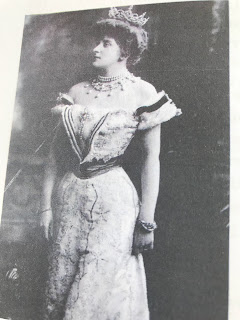The Imperial enterprise carried with it men of vision and fortitude, obscure yeomen from equally obscure villages, who died in obscure parts of the world, soldiers and statesmen, the rapacious and venal, courageous scoundrels, risk-takers, and men driven by duty. And then there were the dipsticks, parasites with titles, the unfortunate barnacles of empire.
Porchy, (the Fifth Earl of Carnarvon) comes to mind along with his umbilically connected chum, Prince Victor Duleep Singh.
In the case of the latter, it can be argued that he was more victim turned parasite. His father, Duleep Singh, the last maharaja of the Punjab had been deposed by the British whilst still a boy. In exchange for the Koh-i-Noor diamond, he was granted a settlement by the Indian Office and lived the rest of his life as a country gentleman and favourite of the Queen who had a thing about dashing young men with fine teeth and flashing eyes.
Father and son, (Victor was born in 1866) were never wholly accepted by the establishment, both exiles in a gilded cage.
Neither were allowed back into India. In this context it is possible to feel some sympathy for the irresponsible Victor who spent other people’s money and welched on his debts.
Serious Victor
Getting on a bit Victor
In his latest work, The Final Twists, William Cross, my go-to truffle hound for the sordid, the unseemly and aristocratic warts in general, re-examines the generally accepted but unproven assertion that Prince Victor was the real father of the sixth Earl of Carnarvon.
In doing so, he retraces old ground: the fact that young Porchy and Victor came from troubled backgrounds. Porchy never got over the death of his mother and was deeply unhappy as a boy. Both boys had father issues, the fourth Earl stiff and unbending, Victor’s father highly sexed and unfaithful, with a small army of mistresses ranging from ‘Norfolk maids’ to chorus girls.
Packed off to Eton, both boys at once showed their unpleasant side and developed habits that would come to haunt them. Both were inveterate gamblers, fleecing their fellow students and in turn being fleeced by moneylenders. They tore through their allowances and the habit worsened at university where they spent money like water. When money ran out, they borrowed without paying back. Their only redeeming feature was their deep and abiding love for each other – to the extent that tongues began wagging. Both frequented the flesh pots and brothels of London and Egypt where young Porchy may have contracted syphilis of the mouth. One can only guess.
For that reason, and because both by now were running short of other people’s money, marriage became a serious option. Enter Almina Wombwell. Her mother, Marie was a close friend of Alfred de Rothschild, Almina’s Godfather and possibly more. With Rothschild wealth the bargain was sealed, and overnight Almina became a Countess.
Porchy, now the Fifth Earl, gained a degree of respectability and more money than even he could spend; Almina gained a title, a sickly syphilis-ridden husband, and Prince Victor Duleep Singh.
Victor also found a wife, Lady Anne Coventry.
The marriage came with the reluctant blessing of Queen Victoria who nevertheless exacted a solemn promise from Lady Anne that she would never, under any circumstances, become pregnant. Late Victorian England was not yet ready for a mixed-race aristocracy.
Deprived of carnal relations with Lady Anne may or may not have been a blessing for Prince Victor. What we do know was that Almina, the new Countess Carnarvon, became increasingly close to the prince; hardly surprising since the 5thEarl suffered from syphilis and she found him cold and revolting.
What is surprising is that she became pregnant and successfully gave birth to the future sixth Earl of Carnarvon, even though she later claimed that she and Porchy never had sex. Victor, on the other hand . . .
It begs more than one question: was it a cynical manoeuvre between friends to create the crucial heir to the earldom? Was it a frustrated Almina rebelling against marital coldness? Was it an equally frustrated Prince Victor continuing his bloodline through the backdoor as it were?
Photos and likenesses have been pored over, diaries examined, archives explored. Unable to quell rumours, the Carnarvons have since retained a diplomatic silence and, understandably, a policy of non-cooperation. If DNA proved the truth of these rumours, then other members of the family would have a stronger claim to the title.
This is what makes William Cross’s final claim so interesting. He has access to a locket containing a miniature portrait of the fourth Earl of Carnarvon along with a lock of his hair. Doubt could be removed at a stroke, rumours dispelled. Until then the fifth Earl of Carnarvon and Prince Victor Duleep Singh remain peculiarly bonded—but with one final twist. If DNA revealed the present Earls of Carnarvon to be descended from Prince Victor Duleep Singh, they could face relinquishing an earldom, but perhaps stake a claim to the Koh-i-Noor Diamond along with the Punjab. An unlikely event but such are the twists and turns of empire and two interesting parasites.



































